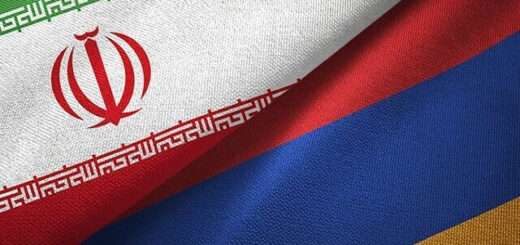AGBU Distributes High-Capacity Generators Donated by France to Strategic Locations in Armenia

It was nine months into Azerbaijan’s deadly blockade of the Lachin Corridor—the only road connecting Armenia to Artsakh— when Mayor of Paris Anne Hidalgo arrived in Armenia with a delegation of representatives of the French regions and cities, including the City of Paris, Marseille, Strasbourg and Lyon and the main French regions: Île-de-France, Auvergne Rhône Alpes, Hauts de France, Occitanie, Sud, Pays de la Loire. Their goal was to accompany a 10-truck convoy of vital humanitarian equipment and supplies to the people of Artsakh who had been isolated from the world and in desperate need of basic utilities, especially electricity. To this end, they collectively granted AGBU France 180.000 euros to deploy this emergency humanitarian aid.
When Azeri troops denied the convoy entry through the Lachin Corridor, Mayor Hidalgo made urgent public appeals to the international community and statements to the international press, demanding that Azerbaijan open the road for humanitarian purposes, as required by international law. These attempts were rebuffed by Azerbaijan, leaving valuable emergency aid stranded in Armenia.
With the agreement of all donors, AGBU took responsibility to redeploy the generators to vulnerable communities in Armenia. This would become part of AGBU’s overall crisis response plan designed to avoid repetitions of the dire scenarios that played out in Artsakh in recent years.
“The availability of these four generators was most timely,“ stated AGBU Central Board Member and AGBU France co-President Nadia Gortzounian. ”We are highly alert to any possibility that border regions inside Armenia proper could lose power due to aggressions and undermining tactics by Azerbaijan. Witnessing the chaos that comes with lack of electricity, AGBU was fully onboard to fulfill the request from our partners and friends from France.”
Determining how best to allocate these generators, AGBU considered such criteria as the potential recipient’s pivotal role in crisis response, past emergency events, energy needs, and overall community impact. The selection process identifying four sites that stood to benefit most from these powerful back-up sources, in agreement with local authorities.
Goris Polyclinic: A vital emergency hub, this health facility seamlessly converts into an emergency hospital during crises but lacks a reliable backup energy source.
Goris Municipality: This administrative nerve center of southern Armenia, and in close proximity to Azerbaijan, requires uninterrupted power to avert operational disruptions in the face of adversities like infrastructure damage or severe weather events.
Sisian Municipality: A linchpin for communication and management, this area requires continuous connectivity to fulfill its strategic functions.
Martuni Maternity Hospital: A critical lifeline to mothers and newborns, this facility is highly vulnerable, as witnessed during the Artsakh War of 2020, when Azeri forces bombarded maternity wards and other health care centers in Artsakh. An auxiliary power source is essential to save innocent lives.
On March 28th in Martuni and April 4th in Sisian and Goris, the AGBU Armenia team orchestrated the delivery of generators to each location, marking a significant step towards bolstering the resilience of the communities involved and the overall national security of the country.
In Syunik, meetings were held with local leaders including Armen Hakobjanyan, the Mayor of Sisian and Arush Arushanyan, the Mayor of Goris. AGBU explained the backstory of the French aid donation, the generators’ original purpose, and AGBU’s unwavering commitment to ongoing collaboration with outside partners to help fortify Armenia with effective emergency solutions. The mayors, in turn, expressed profound gratitude, foreseeing how these generators can help their communities stay ahead of crisis and remain self-sufficient.







